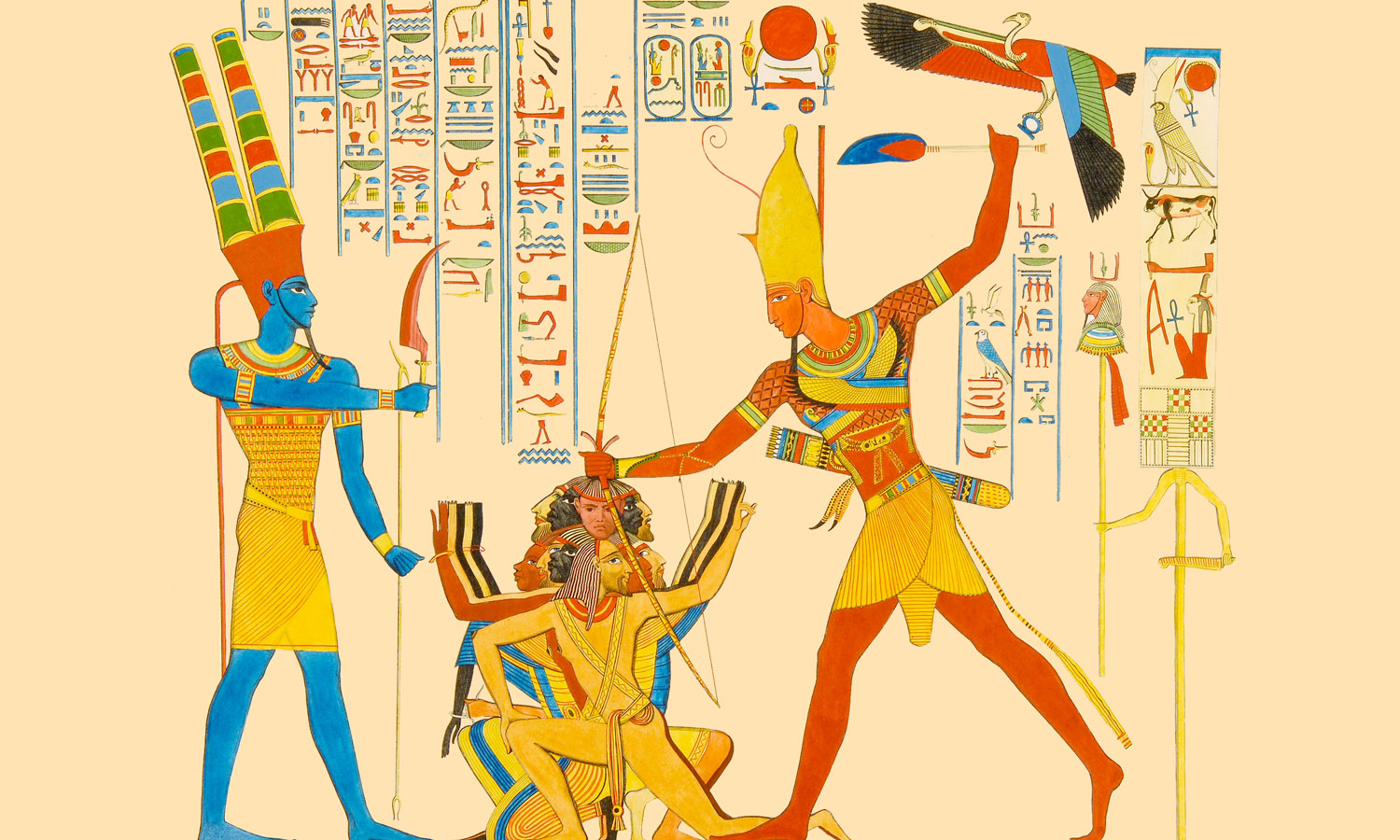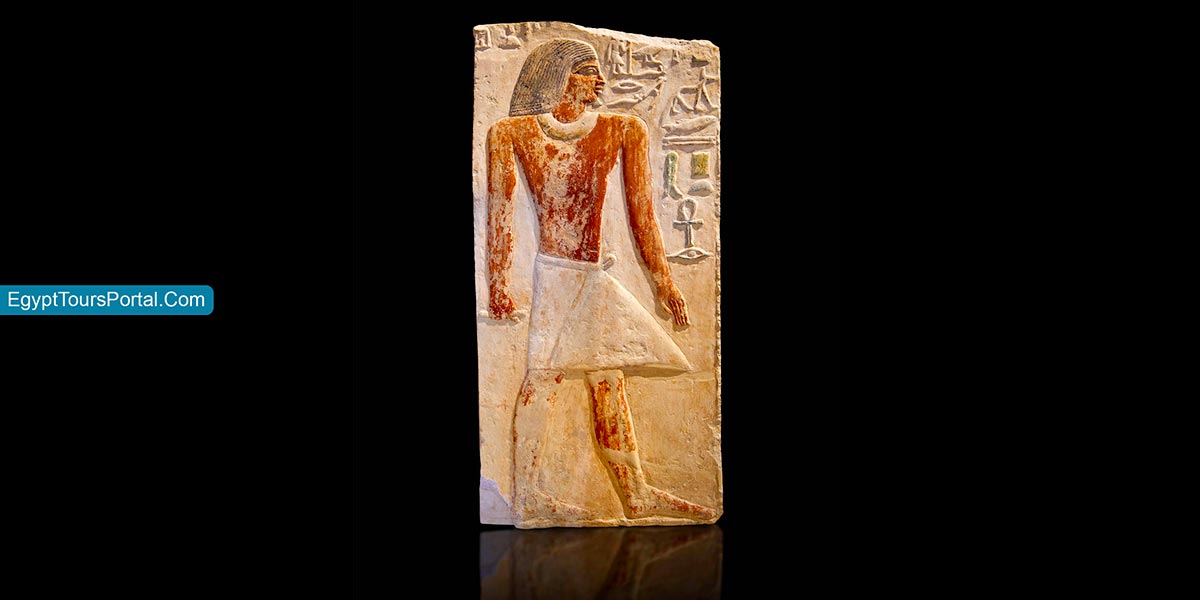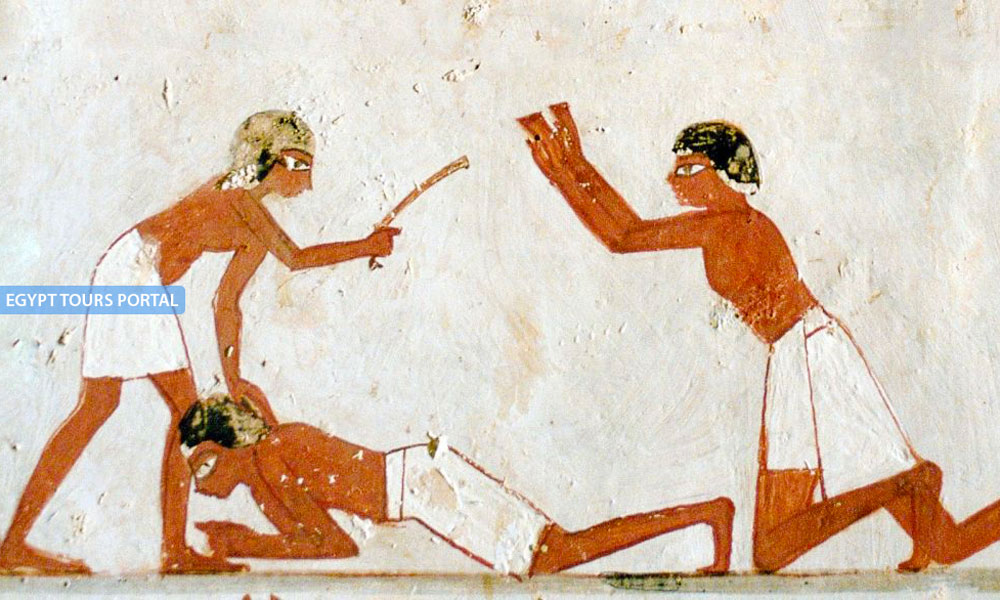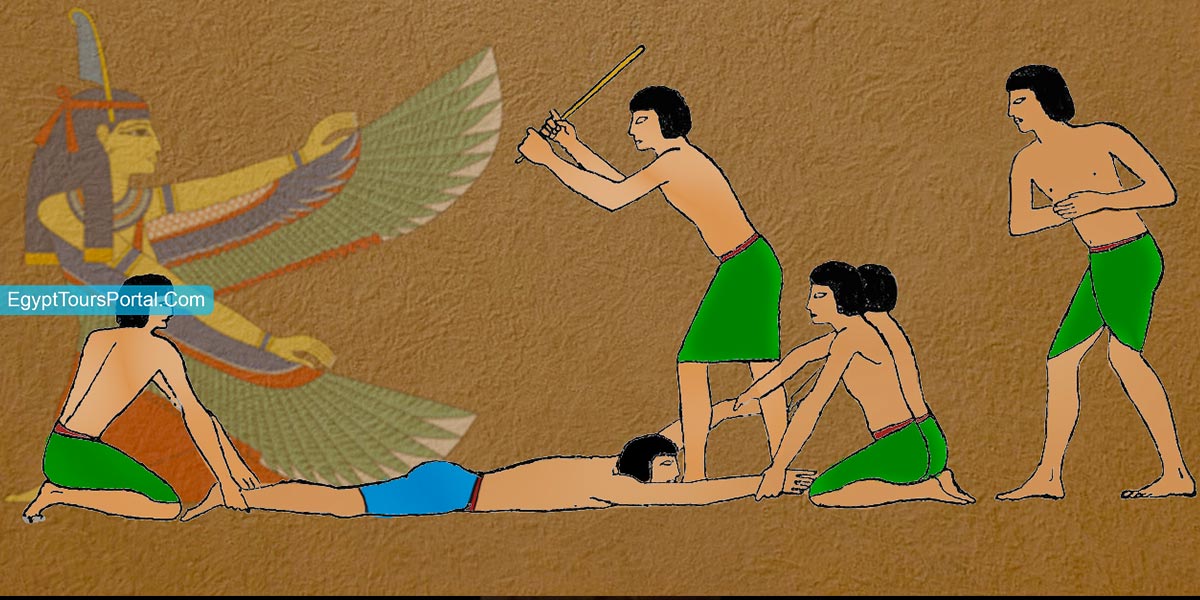Discover the intricate legal systems of ancient Egypt, rooted in morality, religious virtues, and the concept of Maat. Unveil the societal impact, judicial structures, severe punishments for crimes, and the enduring influence of Maat in shaping this ancient civilization's legacy.

The ancient Egyptian society was built on principles of morality & religious virtue, which affected the dynamics related to the crime and punishment of ancient Egypt. Ancient Egyptian society was law-abiding, but sometimes rules and ethics were broken, and justice had to take its course in order to achieve harmony and balance.
Their moral ethics were based on varied social experiences and traditions throughout their history when religion in ancient Egypt was prominent in every aspect of their lives. Along with moral, customary, and religious factors, everything was based on the concept of "Maat," which revolves around truth & justice and is mainly viewed as a philosophical embodiment of the living human conscience. The entire process of punishment was one of the fundamental elements of the life of Egyptians during ancient times.

The ancient Egyptian texts show the importance of morality and crime-fighting with different penalties. There were two types of prosecution for violating the moral norms: the first was the religious court of the underworld, where the deceased was tried in front of Osiris for his actions, and the second was a civil court, where the discipline of the community was achieved.
All the judicial matters were controlled by the vizier, the king’s right hand. The local court or "Kenbet" (a court on the regional and national level) was made up of community leaders who would hear the cases and decide who was guilty and who was innocent; there were also other courts that administered the law, such as the Seru (a group of elders in a rural community), the Djadjat (the imperial court) alongside the Kenbet.
The vizier was the ultimate supreme judge but most court cases were handled by lower magistrates. The court could even be held in the marketplace or on the street, and there was also an administrative building called the judgment hall, which existed in any city. In the new kingdom of ancient Egypt, there were no lawyers or appeals, the priests of Amun were the ones who decided the verdict as the people trusted them to give a just hearing and to make the right judgment.
The earliest form of the law at the regional level was bureaucratic during the Old Kingdom of ancient Egypt (2613-2181 BC) as judges were often priests who conferred with their god to reach a verdict rather than weighing the evidence and listening to testimonies but during the Middle Kingdom of ancient Egypt (2040-1782 BC) professional judges presided over courts and the judicial system operated on a more rational, recognizable paradigm. This period also saw the creation of the first professional police force which enforced the law, took suspects into custody, and testified in court.

There were two types of crimes in ancient Egypt; the first kind was committed against the community, such as murder, adultery, and theft of personal property, and crimes committed against the state, such as bribery, treason, theft of public property, and any kind of crimes committed against religious institutions like:
The ancient Egyptians appreciated the sanctity of life and respected it, which made them use the death penalty in order to not violate the sanctity, so the penalty was divided between murder and manslaughter. An example had to be made in order to preserve the non-violation of the death penalty.
The death penalty was for intentional murder and even resorted to psychological sanctions that were viewed more severe than execution for example in the case of the father killing a son or daughter, the body of the killer is tied with the corpse of the victim for three days until the moment of decomposition all while under the protection of guards and burning alive for a son or daughter killing one of his parents. Grave robbers prey on crocodiles or even impale them.
There was a sort of warning for anyone who threatened to kill anyone. Suicide was apparently a gift granted to those sentenced to death by the people. As for involuntary manslaughter, there was no specific penalty, as the doer wouldn't enter his house until he cleaned himself of the sin, made offerings, sought forgiveness from the family of the offender, and made appropriate compensation.
The penalty didn't overlook whoever covered up the murder or held information regarding the crime as they were to stand in front of judges, and if found guilty, he would stay in his place and take his life. Whoever kills an animal with a symbolic religious significance would be executed if it was done intentionally.
In ancient Egypt, Adultery was considered a religious crime, and the death penalty was applied in order to prevent the spread of immorality in society. In the teaching of Ptah-Hutb, he warns not to be fascinated by women and to be careful when approaching women, as that's why a thousand men perish. When it comes to adultery with married women, it is a crime deserving of death as it is easier to commit any other sin after that.
If the crime is committed by a married woman, then the husband has a legal right to punish or forgive the wife or leave to the court if the husband accused the wife with no proof. The punishment of the man was much lighter than the women in the crime of adultery as the Egyptians believed that offense falls primarily in the hands of the woman; while women would be killed, the man would sever a thousand blows.
The penalty for stealing the property of individuals was to pay a fine up to two or three times the stolen objects, and as for the theft of public property, the thief would pay up to 180 times the amount of stolen materials.
The accused would be ordered to return the stolen goods after his full confession as he was the subject of beating a hundred strokes by hand, swearing an oath, or thrown into the river for crocodiles, and the entire sentence was excused in full public display in front of everyone.
One of the most serious crimes of the state's administrative work was mainly bribery and was punished by dismissal from office and the degrading to the stature of a farmer. Bribery plays a negative role in crippling the entire administrative process to the point where government clerks would steal a file proving the conviction of one of the accused from the judicial archives. Many criminals, like thieves and grave robbers of the tomb of a king during the reign of Ramses IX, were freed after paying bribes.
During the entire human history, there has never been a more heinous crime than Treason. The execution was the only imposed penalty regardless of the social status of the accused, especially if the majority of the defendants were close to the king.
When King Ramses III chose an heir to his throne, this created jealousy among his wife, especially a middle-class wife called T, who plotted to assassinate him and make her son "Ntawar" the king. The wife & all the conspirators were caught, prosecuted, and punished. Also, there was no cemetery for anyone who committed a crime against his majesty, as the body would be thrown in the river.
The ancient Egyptians considered grave robbing to be a great crime especially if the tomb belonged to a royal figure like a king, queen, or prince. The penalty was death as it was considered a crime against the state, but sometimes the laws were decreased to the cutting of hands or the beating of 100 blows if the mummy was left untouched. Special laws were created to protect them against any aggression.
The penalty for stealing a temple, whether an artifact or an animal, was 100 blows and 100 times the usual fine. There were also 100 blows as punishment for whoever slowed down in solving the problem as soon as possible. The judge of the city of MAAT-RA, who received 100 strikes, was isolated from his position and placed as a cultivation agent.

Various studies centered around the concept of Maat as the ancient Egyptians understood the value of balance, order, Justice, truth, and harmony, which were the core of the philosophical concept of Maat. It was viewed as the order of human society and the cosmos. The principles of Maat encouraged everyone to coexist.
They believed a person should union with Maat and then fill his heart with Maat in order to triumph over the failure & dishonesty of his earthly life. According to the translated teachings of minister Ptah-Hetep of the 5th dynasty (2500 BC), "It is a path that stretches out before the ignorant, but the poor will never allow a berth in any port. But the power of Maat (Truth and Justice) is that it transcends the days, and one can say that it is indeed my father's wealth.
Discover the ancient Egyptian mythology afterlife and Judgment, revealing what the ancients thought about life beyond death. Learn more.
Read MoreThis concept was one of the reasons responsible for the miraculous persistence of the Egyptian civilization that lasted for thousands of years. The ancient Egyptians were able to have a clear idea of their country in every aspect of their life based on profound philosophical thought, justice & order, as shown in the structure of their writing. They maintained a strictly governed balance between the different aspects of life and the Egyptian public.
Explore these profound laws & judiciary systems with our vacation packages to Egypt across the stone tablets of the immortal cities of Cairo, Luxor, and Aswan. From the iconic pyramids in Cairo to the timeless allure of Luxor's temples and the serene beauty of Aswan, our tours offer a glimpse into Egypt's rich legal heritage amidst breathtaking landscapes and ancient monuments. Book your journey now and embark on an enriching exploration of Egypt's ancient legal systems!
Private 4 Days Cairo Tour Packages for Australian Travelers 4 days Cairo Egypt Tour ...
Tour Location: Cairo – Giza...
5 Days Cairo and Alexandria Tour Package For Australian Travelers 5 days Cairo and A...
Tour Location: Cairo/Giza/Alexandria...
6 Days Cairo, Luxor & Aswan Tour Package For Australian Travelers 6 days Cairo, ...
Tour Location: Cairo/Giza/Aswan/Luxor...
Amazing 7 Days Cairo and Hurghada Holiday for Australian Travelers 7 Days Cairo &...
Tour Location: Cairo – Giza – Hurgh...
Crime in Ancient Egypt varied within the fabric of society, which adhered to a legal system under the principles of the goddess of truth, justice, and order, Ma’at. Some of the common crimes in Egypt included theft, assault, fraud, killing, battery, and grave raiding. Crimes were classified as either public or private, and the severity of the punishment varied depending on the type of crime and the social status of the offender.
The worst crime in Ancient Egypt was often considered treason against the pharaoh or the state. Conspiring against the ruler or engaging in activities that threatened the stability of the kingdom were treated with utmost severity. Treason was punishable by death, and the offender's family was often also punishable by death.
Capital punishment in Ancient Egypt was reserved for serious crimes such as theft, assault, fraud, killing, battery, murder, and grave raiding against the state or the pharaoh. The methods of execution included hanging, drowning, or impalement.
The ancient Egyptian slaves were punished for various means, both mental and physical. Any kind of crime committed by anyone, including slaves, was punished by beatings, imprisonment, and hard labor. Of course, the death penalty was reserved for the most serious crimes.
Grave robbing is considered to be the biggest criminal offense anyone can commit. The punishment is torture followed by a painful death.
The ancient Egyptians believed that the gods utilized the power of nature to punish any sinner and an entire sinful society for disrespecting the celestial gods or desecrating sacred spaces. These offenses could incur severe punishment and were considered detrimental to the cosmic order “Ma'at”.
There is no record of any kind mentioning the existence of a serial killer in ancient Egypt.
One of the greatest sins ever committed in the society of Egypt is connected to religious transgressions, such as disrespecting the gods or desecrating sacred monuments. Damaging the cosmic order of Ma’at would have severe consequences for the entire world.
The legal system in Ancient Egypt involved judges and courts who adjudicated disputes and determined punishments, which were divided into Kenbet, Djadjat, and Seru. The severity of punishment depended on factors like social status, intent, and the nature of the crime. Death, Fines, torture, and exile were also common forms of punishment.
The punishment for Murder was the killer was tied to the body of the deceased for three days and then buried alive. Also, the punishment for Adultery and rape would involve cutting the genitalia of the guilty and then burning them in front of him.
There were many ways to execute the guilty in ancient Egypt, which included hanging, beheading, buried alive, drowning, impalement, feeding to crocodiles, and more.
The entire country of Egypt deserve to be explored with its every heavenly detail but there are places that must be seen before any other such as the breathtaking Hurghada's red sea, The wonders of Cairo the pyramids of Giza, the great sphinx, the Egyptian Museum, Khan El Khalili Bazaar, the wonders of Luxor like Valley of the Kings, Karnak & Hatshepsut temple and the wonders of Aswan such as Abu Simbel temples, Philea temple, Unfinished obelisk and The Wonders of Alexandria like Qaitbat Citadel, Pompey's Pillar and Alexandria Library. Read more about the best places to visit in Egypt.
If you want to apply for a Visa On Arrival that lasts for 30 days then you should be one of the eligible countries, have a valid passport with at least 6 months remaining and pay 25$ USD in cash, as for the E-Visa for 30 day you should have a valid passport for at least 8 months, complete the online application, pay the e-visa fee then print the e-visa to later be presented to the airport border guard. You could also be one of the lucky ones who can obtain a free visa for 90 days. Read more about Egypt travel visa.
Egypt has a variety of delicious cuisines but we recommend “Ful & Ta’meya (Fava Beans and Falafel)”, Mulukhiya, “Koshary”, a traditional Egyptian pasta dish, and Kebab & Kofta, the Egyptian traditional meat dish.
The best time to travel to Egypt is during the winter from September to April as the climate becomes a little tropical accompanied by a magical atmosphere of warm weather with a winter breeze. You will be notified in the week of your trip if the Climate is unsafe and if any changes have been made.
You should pack everything you could ever need in a small bag so you could move easily between your destinations.
We have been creating the finest vacations for more than 20 years around the most majestic destinations in Egypt. Our staff consists of the best operators, guides and drivers who dedicate all of their time & effort to make you have the perfect vacation. All of our tours are customized by Travel, Financial & Time consultants to fit your every possible need during your vacation. It doesn't go without saying that your safety and comfort are our main priority and all of our resources will be directed to provide the finest atmosphere until you return home.
You will feel safe in Egypt as the current atmosphere of the country is quite peaceful after the government took powerful measures like restructuring the entire tourist police to include all the important and tourist attractions in Egypt. Read more about is it safe to travel to Egypt.
Wear whatever feels right and comfortable. It is advised to wear something light and comfortable footwear like a closed-toe shoe to sustain the terrain of Egypt. Put on sun block during your time in Egypt in the summer to protect yourself from the sun.
The best activity is by far boarding a Nile Cruise between Luxor and Aswan or Vise Versa. Witness the beauty of Egypt from a hot balloon or a plane and try all the delicious Egyptian cuisines and drinks plus shopping in old Cairo. Explore the allure and wonders of the red sea in the magical city resorts of Egypt like Hurghada and many more by diving and snorkeling in the marine life or Hurghada. Behold the mesmerizing western desert by a safari trip under the heavenly Egyptian skies.
There are a lot of public holidays in Egypt too many to count either religious or nation, the most important festivals are the holy month of Ramadan which ends with Eid Al Fitr, Christmas and new years eve. Read more about festivals & publich holidays in Egypt.
Egypt is considered to be one of the most liberal Islamic countries but it has become a little bit conservative in the last couple of decades so it is advised to avoid showing your chest, shoulders or legs below the knees.
Arabic is the official language and Most Egyptians, who live in the cities, speak or understand English or at least some English words or phrases. Fewer Egyptians can speak French, Italian, Spanish, and German. Professional tour guides, who work in the tourism sector, are equipped to handle visitors who cannot speak Arabic and they will speak enough English and other languages to fulfill the needs of all our clients.
The fastest way is a car, of course, a taxi. If you are in Cairo ride a white taxi to move faster or you could board the fastest way of transportation in Egypt metro if the roads are in rush hour.
The temperature in Egypt ranges from 37c to 14 c. Summer in Egypt is somehow hot but sometimes it becomes cold at night and winter is cool and mild. The average of low temperatures vary from 9.5 °C in the wintertime to 23 °C in the summertime and the average high temperatures vary from 17 °C in the wintertime to 32 °C in the summertime. The temperature is moderate all along the coasts.
It is the home of everything a traveler might be looking for from amazing historical sites dating to more than 4000 years to enchanting city resorts & beaches. You will live the vacation you deserve as Egypt has everything you could possibly imagine.









